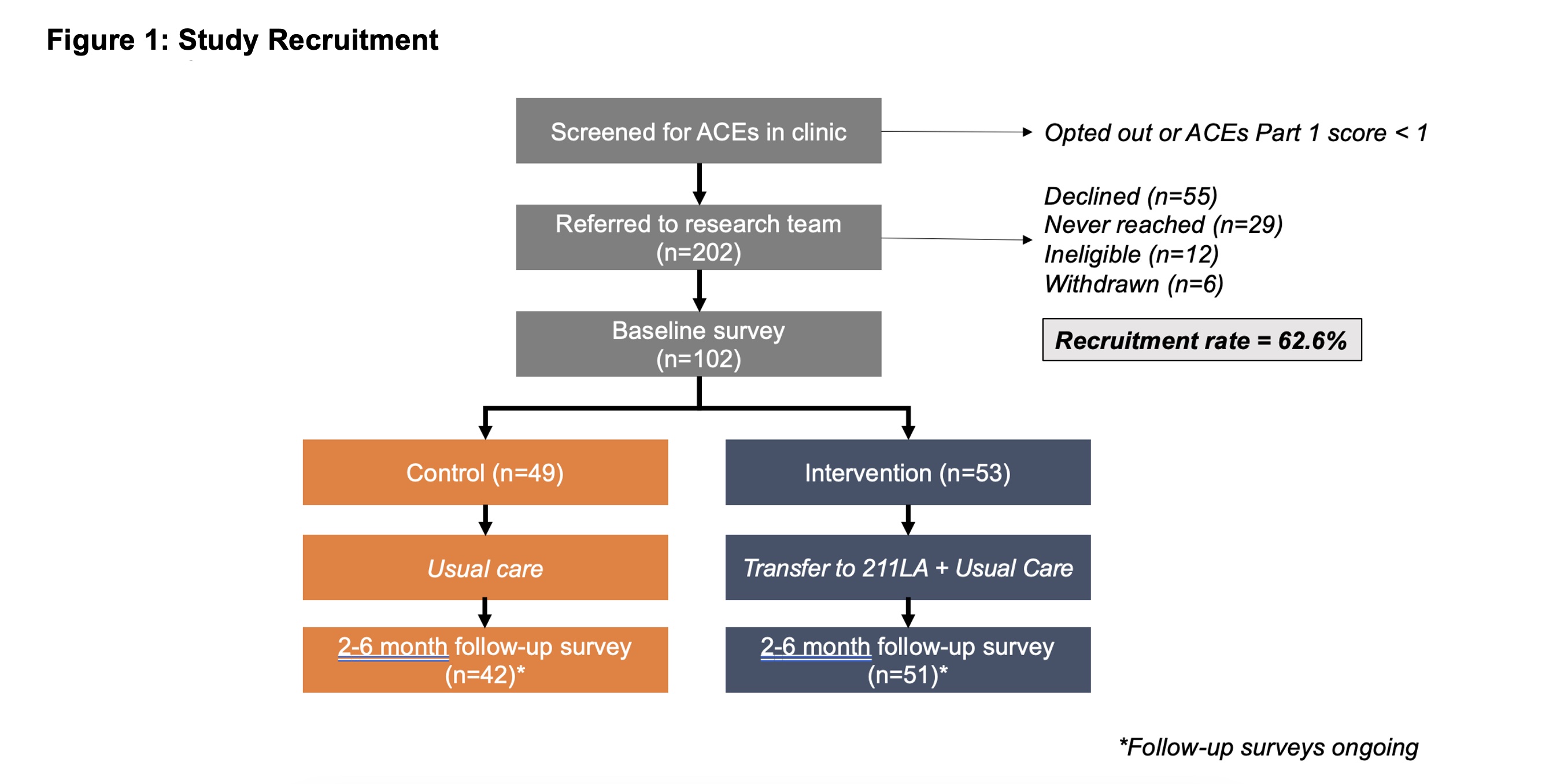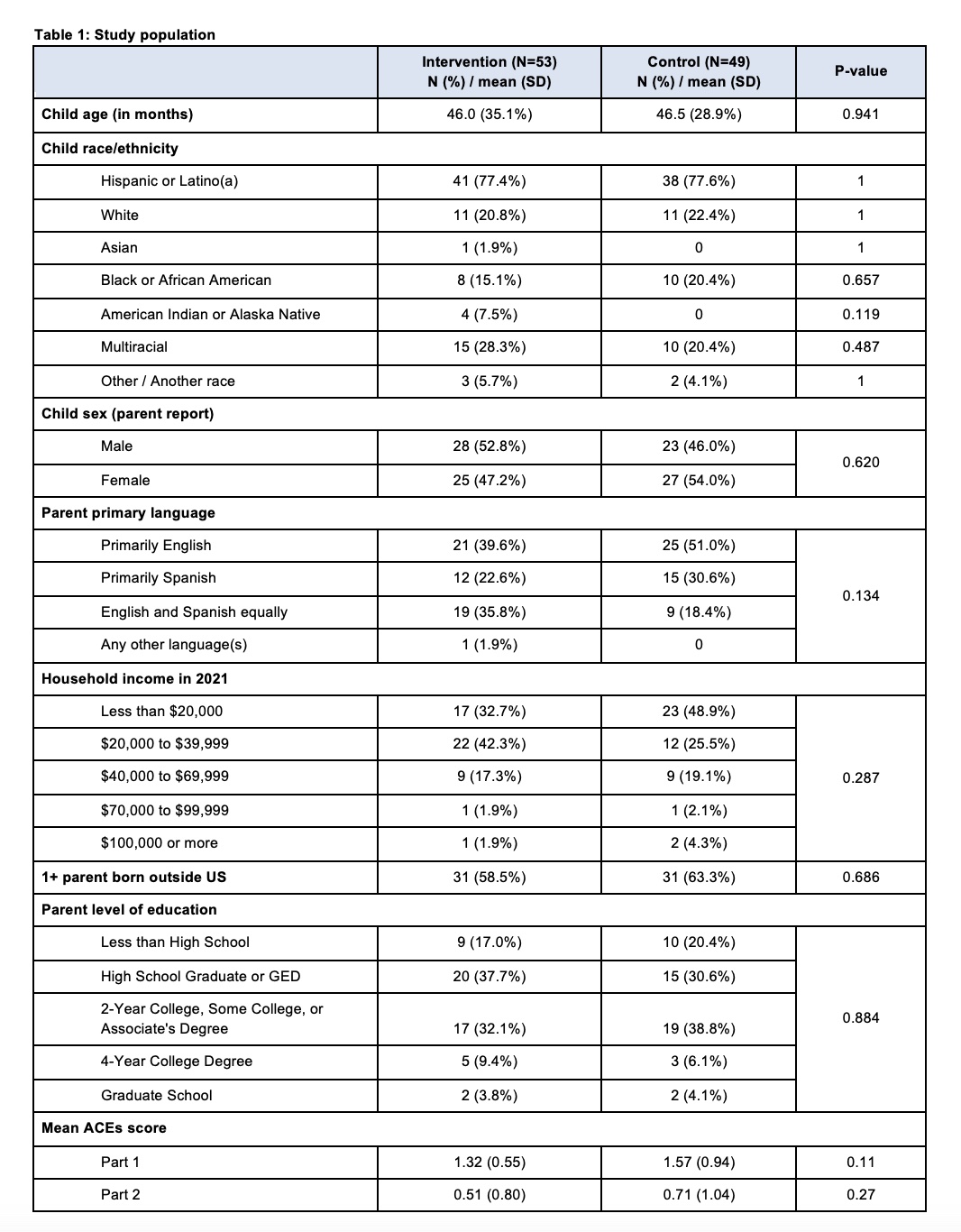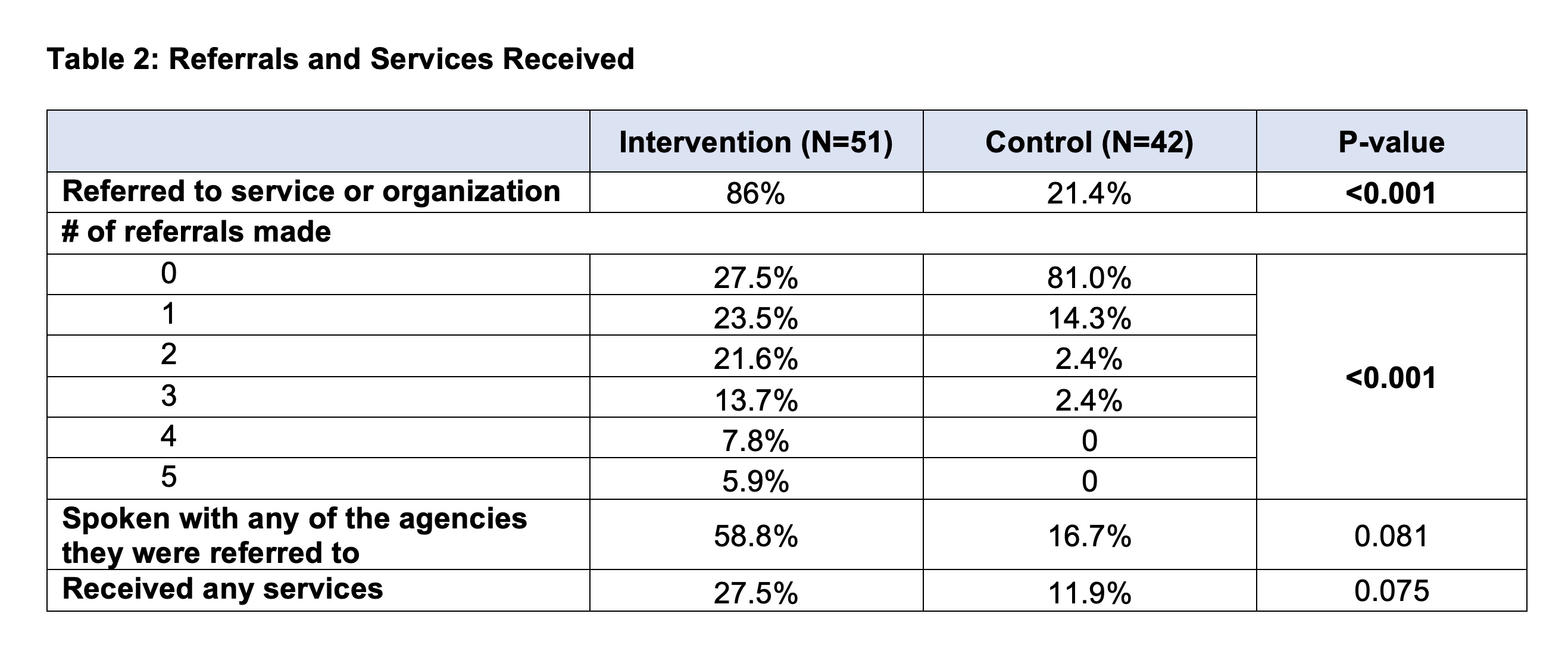Health Equity/Social Determinants of Health
Session: Health Equity/Social Determinants of Health 7
306 - Testing a Scalable Model for ACEs-Related Care Navigation via 211 Telephone-Based Services
Sunday, May 5, 2024
3:30 PM - 6:00 PM ET
Poster Number: 306
Publication Number: 306.1696
Publication Number: 306.1696
- CL
Caryssa N. Lim, MPH (she/her/hers)
Medical Student
Kaiser Permanente Bernard J. Tyson School of Medicine
PASADENA, California, United States
Presenting Author(s)
Background: Adverse childhood experiences (ACEs) screening might improve referrals for and receipt of services to mitigate toxic stress, thereby improving child and parent health outcomes. However, few studies have rigorously explored the real-world effectiveness of ACEs screening and care coordination.
Objective: 1. To examine feasibility of connecting children who screen positive for ACEs during a clinical encounter to 211LA (LA County’s largest health and human services information and referral provider) for ACEs-focused community care coordination.
2. To explore in a randomized pilot whether ACEs-positive families that are connected to 211LA in addition to usual care receive more referrals and services than families who receive usual care.
3. To explore whether connection to 211LA is associated with reduced short-term parental stress.
Design/Methods: We partnered with 3 federally qualified health centers (FQHCs) to recruit participants for this randomized controlled pilot. Families of children who screened positive for ACEs (score of 1 or greater) at the FQHC were invited to complete a baseline survey and then randomized into the 211LA + usual care intervention group (N=53) vs. the usual care only control group (N=49). All participants were invited to complete a follow-up survey 2-6 months after the baseline survey. Fisher’s exact test was used to estimate whether intervention group assignment was associated with differences in referrals, services, and parental stress. Qualitative interviews will also be conducted with participants to better understand experiences with ACEs screening and care coordination (results ready before PAS 2024).
Results: At follow-up (average time 4 months), compared to control families, a larger percentage of intervention families received at least one referral (86% vs. 21.4%, p< 0.001), connected to a referral agency (58.8% vs. 16.7%, p=0.081); and received at least one service (27.5% vs. 11.9%, p=0.075). There were no changes in health and other behavioral outcomes at follow-up.
Conclusion(s): Families who were connected to 211LA were more likely to receive referrals and make connections to services. Larger, longer studies are warranted. 211LA and similar providers may be uniquely positioned to provide effective ACEs screening and ACEs-related care coordination.



